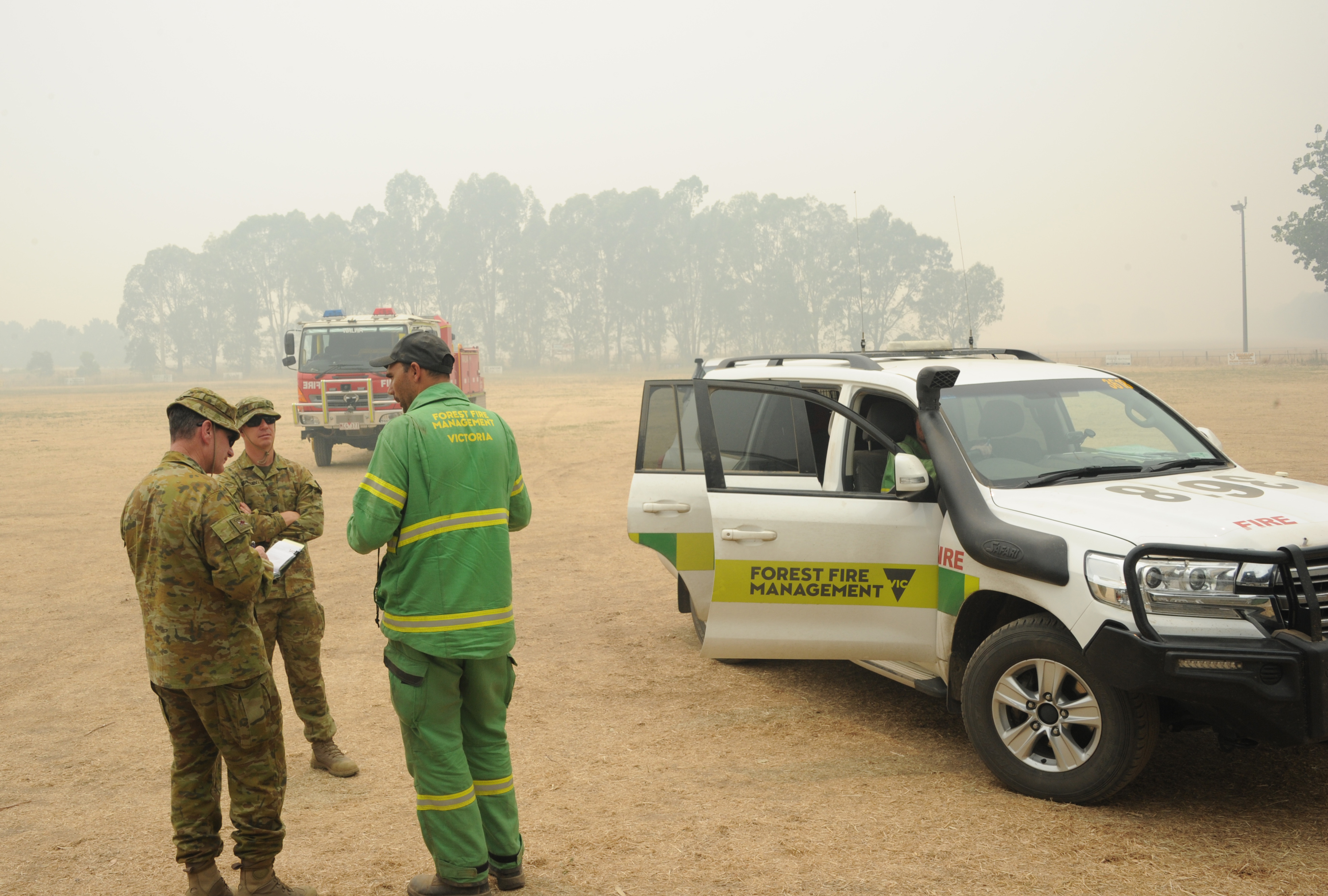I recently returned from the 16-day CIMIC Planner and Operator Course (CPOC) which targets those looking to post into Army’s Civil-Military Cooperation (CIMIC) group.
Being less than two decades old, CIMIC is a relatively new capability. CIMIC planners and operators seek to coordinate and foster cooperation between civil actors and the military, in support of the commander and the mission.
Members of CIMIC work at the interface between military, government, non-government organisations (NGOs) and the civil population, and thus need to be well trained and possess a variety of skills that are useful in any career.
Whether you’re being posted to CIMIC or not, there’s a lot CIMIC can do to help you in your job.
1. If you work with people
Whether you’re a Liaison Officer in a government department, a solider in the field, or a salesperson in your civilian job, key to working with multiple stakeholders is managing expectations.
Total transparency isn’t always possible in a work environment. In the military, you will be bound by operational security requirements which will limit what you can say and to whom. CIMIC helps you refine your interpersonal skills to best engage with stakeholders.
In an operational environment, how do you help maintain the positive working relationships the Combined Joint Task Force (CJTF) has with various NGOs, without overcommitting Defence resources and also meeting Australia’s legal obligations?
Defence is often not the lead organisation in Australia’s whole-of-government overseas missions, and our job must therefore be to enable other organisations, not create a reliance upon Defence resources.
2. If you work with planning
As a staff officer, like in any planning role, you’re not just focusing on the task at hand, but thinking of all the other factors which could affect your mission.
An instructor on CPOC encapsulated this by asking trainees each planning cycle- “outside of what’s in front of you, what else is relevant?”
As part of CIMIC, you could be preparing Key Leader Engagement packs or Profile Cards on a key stakeholder the commander is about to meet. You may be trying to advise the commander how Defence might be perceived when first entering a community. CIMIC teaches you to ‘see the bigger picture’.
Is it relevant there is a local election occurring in the community in the next three months? Does this change people’s motivations?
Is it relevant the local leaders in the community are only from one ethnic group or gender? How will that affect their interactions with Defence? How will they perceive our interactions with others in the community?
Looking back on my time as a Liaison Officer to the ACT Government during Operation COVID-19 ASSIST through a CIMIC lens teaches me a lot about how I could have done things differently. While I like to think I was turning up every day to just ‘do my job’, I should have also looked at factors outside of merely what I was doing during the day-to-day.
Is it relevant that most of the civilian agencies we came across had also worked with Defence during OPERATION BUSHFIRE ASSIST? How does that change the way they work with us, compared to if we were starting afresh?
Is it relevant that Defence is a federal asset working with a state government? How are our reporting mechanisms perceived? And will this change the way various departments work with us?
3. If you work with decision making
When it comes to making decisions, CIMIC is quick to point out that every decision will have second and third order effects, as well as intended and unintended, desirable and undesirable consequences.
First order effects are the results you’re expecting to occur from your action. Second order effects are the responses to those results. Third order effects are the long term cognitive or attitudinal changes that occur as a result of those responses.
It may initially seem beneficial for Defence to undertake a Quick Impact Project in a community by painting a local church. But will doing so align Defence with a certain religious affiliation (unintended, undesirable consequence) which therefore affects the CJTF’s relations in the community, thereby impacting the mission?
***
Thinking through a CIMIC framework allows commanders to think ahead and war game.
In a civilian capacity, it allows you to be a more emotionally intelligent manager– what are the implications of this decision? How will others react when they hear of this decision? What impact will those reactions have upon our team’s goals?
There is significant value in learning the skills and trade of a CIMIC planner and operator, regardless of whether you post into the organisation itself. With CIMIC training, you can enhance you and your team’s situational understanding, and support decision making across the entire team. Skills useful in any job.
About the author: Lieutenant Brody Hannan is the Adjutant of the 4th/3rd Battalion, the Royal New South Wales Regiment. Views expressed are his own.
Cover Image Credit: PTE Stuart Rayner, Defence Image Gallery

